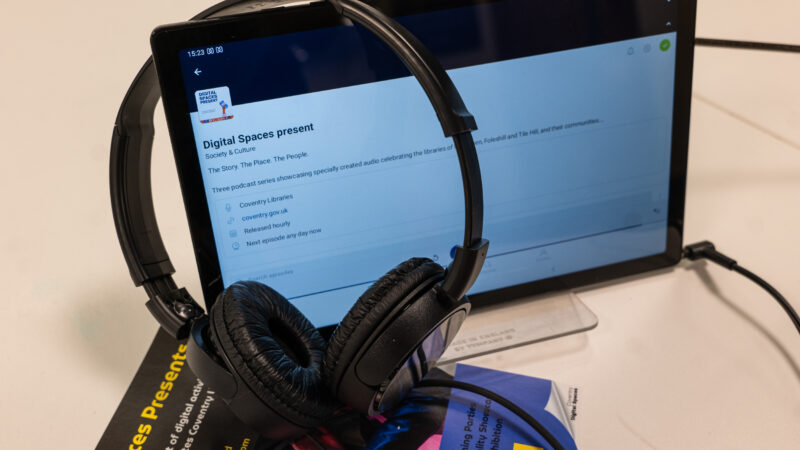The idea
Have you got a brilliant idea for radio or TV, just bursting to be seen by a broadcaster? Then it’s time to work on your pitch. In 2022, The Space ran a webinar with TV industry professionals as part of our ‘Pitch Perfect’ mentoring programme.
The session featured:
- Aaqil Ahmed, former Head of Religion and Ethics at BBC and Channel 4
- Matthew Dodd, Commissioning Editor, BBC Radio
- Collette Foster, CEO and Creative Director, Full Fat TV
- Margaret Glover, Writer, Script Editor and Producer
- Vanessa Woodward, Head of Partnerships at Sky Arts
They answered all the most commonly answered questions about shaping and presenting ideas to the people who can get them made. Here, we round up the best of their advice.
Working with commissioners
Do ideas to broadcasters have to come through independent production companies or agents?
With the exception of open call opportunities, generally yes. Commissioners can’t consider ideas from everyone – their time is already very stretched. As a result, most broadcasters will only look at ideas submitted by production companies (‘indies’ in TV speak).
If you are a writer, director or performer with an agent, your agent may be able to have initial conversations with a broadcast commissioner on your behalf to gauge interest in your idea at any early stage. But ultimately, unless you have your own production company, at some stage in the process, you will need a production company to make and deliver your programme.
For emerging talent, this is a good thing because if the indie has a strong track record of delivering the type of programme you want to make, they will add weight to your idea. The commissioner also needs to know any idea is ‘deliverable’ before committing to it.
How do you find a production company?
Independent production companies come in all shapes and sizes including a new breed of ‘micro indies’ that the industry is looking to support. Pact, the UK trade body that represents independent production companies, has a list of its members. The Writers’ & Artists Yearbook also contains a wealth of knowledge and tips.

How do you pitch work to a production company?
Before approaching an independent production company, do your research and find a company that specialises in the genre your idea is in (drama, documentary, live performance, music, comedy, etc) and who have made programmes you like, ideally for the broadcaster you would like to pitch to.
For factual ideas such as documentaries, arts programming or entertainment, write a short email to either someone in their development team or a genre lead. In the email outline your idea, your own creative experience, why you want to work with them specifically and ask if they would be interested in hearing more via a meeting, call or more documentation.
Please be aware that you will get lots of no’s or non-responses – kissing a lot of frogs is part of the process.
For drama writers or directors, the best route is often via an agent, but you often need to have made something in order to obtain representation. Keep a look out for competitions, open calls and collaborative opportunities. It’s not just producers who need to be entrepreneurial. As a writer or director, you, too, need to understand the marketplace and think of ways of building an audience who follows your work.

Should I send completed ideas and scripts?
Whether it’s drama or factual, you will need a clear idea of the arc of your story and its beginning, middle and end. For factual, this means you need to know how your story will unfold and what the ‘story beats’ are across an episode or a series. For scripted projects, you will be asked for a script sample or first episode script early on and you may be asked for a script or treatment if you pique someone’s interest, so it’s best to have it ready to go!
How do I find the right broadcaster for my work?
Commissioning priorities change regularly, as do the slots for certain types of programmes within the broadcast schedule. You need to do your research to work out where your idea could land, and to ensure it’s not an idea that your chosen channel has just run. The main broadcaster commissioning pages give lots of detail about what they are looking for:
- Audible
- BBC TV
- BBC Radio including BBC Sounds
- Channel 4
- Channel 5
- ITV
- Sky
- UK TV (Gold, Dave, W, alibi
- Netflix
How important is my experience – professional and personal – in my pitch?
There are open calls looking for new talent where no experience is necessary but, generally, your professional experience is important in the commissioning process. Even if you don’t yet have a broadcast credit, if you have won an award for your work, or your next stage commission is with a major theatre, make sure you refer to them in your approach.
If you’re new to broadcast, think through what the first step on the ladder might be for you. It’s unlikely a newcomer to broadcast will get a 20-part sci-fi series withan enormous budget commissioned. But could you try out your storytelling skills in a new medium – an audio drama, for example – before working up to your big series-long idea?
For many programme ideas, personal experience is not necessarily relevant but if you are pitching something that draws on your lived experience, you may wish to include that to underline the authenticity of your piece.
Red flag moments
What are the ‘red flag moments’ that can turn a pitch with a solid idea into a quick and very firm ‘no’?
- When the pitch shows no knowledge of the channel that it’s being pitched to and its audience. Research is key before any pitch and each channel has a different ‘personality’. It’s important that knowledge of that is reflected in your proposal.
- A pitch that is very similar to a programme that has just been on air.
- A pitch that is unrealistic for the kinds of budgets that are available for the medium (TV or radio) or channel/slot, eg period drama, high-concept fantasy or Science Fiction, adaptations with expensive rights.
- A pitch that feels unfeasible from a production perspective – for example, don’t promise very high-profile casting unless you can deliver it.
- Too long, or too much material.
Final words of advice
Follow industry trends and briefings to keep up with the latest news. Trade publications such as Broadcast and Televisual may be useful, and the following links may also be of interest:
How useful was this resource?




